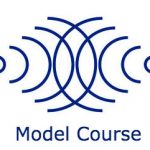David Koetje, Professor of Biology, Calvin College; Amy Wilstermann, Associate Professor of Biology, Calvin College, Grand Rapids, MI 49546
A 2012 SENCER Model

This course introduces students to a breadth foundational biology concepts ranging from ecosystem dynamics to genomics through a breadth of “complex, capacious, often unsolved problems of civic consequence” (see Table 1). The interdisciplinary nature of these societal challenges as well as the diversity of skills and knowledge that will be required to successfully address these problems is highlighted and students are given tools (an introduction to systems thinking and daily opportunities to work in a collaborative setting) to begin to work toward solutions. Through our involvement with the Great Lakes Innovative Stewardship through Education Network (GLISTEN), students are also given the opportunity to put knowledge into practice during service learning experiences.
- Learn how to maximize one’s effectiveness as a learner and take responsibility for doing so.
- Hone creative, critical, practical and computational thinking skills that are essential in biology.
- Learn how to apply biology skills and concepts to help resolve complex, real-world problems.
- Integrate scientific perspectives to inform one’s personal worldview.
- Recognize biology as a communal process of analyzing and interpreting the living world; exercise virtues (diligence, honesty, humility, patience, etc.) necessary to sustain communal learning.
Linking Science and Social Issues
The Course teaches
Systems Biology through:
Science-based Systems Thinking and Public Policy; Holism v. Reductionism; “Preponderance of Evidence” as the Basis of Scientific Consensus
Biodiversity and Conservation through:
Biodiversity Conservation; Climate Change Mitigation; Ecosystem Restoration (Service Learning); Human Environmental Impacts and Stewardship
Evolution through:
Evolutionary Impacts of Climate Change; Antibiotic Resistance; Comparative Genomic Analyses; Cultural v. Biological Concepts of Race
Food Biomolecules, Metabolism and Nutrition through:
Industrial v. Sustainable Agriculture; Farm Subsidies and Food Systems; Food v. Fuel Controversies; Dietary Guidelines; Malnutrition; Obesity and Related Diseases; Food Security
System Function and Microbial Ecology through:
Transmission of Infectious Disease; Antibiotic Resistance; Rise of Allergies and Autoimmune Disorders
Cellular Reproduction, Genetics and Genomics through:
Race and Human Genomics; Eugenics; Genomic Medicine; Public Health; Stem Cell Research; Regenerative Medicine
The Course
In the Fall of 2009, the Biology Department at Calvin College offered the introductory course, Biology 123 – Living Systems: Global Concepts, Local Connections, in its newly revised curriculum for the first time. The new curriculum was developed in response to changing student needs and national calls to rethink and reform biology education at the undergraduate level. While the revised curriculum still provides students with a strong foundation of biological knowledge, it places much more emphasis on the development of competencies such as integrative problem-solving and quantitative skills, and application of knowledge to relevant societal challenges. These emphases, as well as the student-centered pedagogies employed to engage students and invite them to be active participants in the discovery process are aligned with national reform recommendations , and SENCER ideals and strategies. As such, Biology 123 serves as the foundation for a SENCERized curriculum.
Evaluating Learning
Tests and Formative Assessments:
Formative assessments will contain short answer questions. Tests and the final exam will contain a blend of multiple choice and short answer/essay questions, focusing on biological concepts and problem-solving. A few of these will involve working in teams. The final exam is cumulative.
Tests and formative assessments must be taken at the scheduled time, except in cases of illness or emergency. In the event of illness, please contact your instructor before class time.
SALG Surveys and Teamwork Assessments:
These on-line surveys are conducted near the beginning, middle, and end of the course. They are meant to gauge students’ assessments of their learning gains with respect to the course goals. Your instructors will not be able to track your answers to you, but they will know whether or not you have completed each SALG. Full credit is given to all who complete each SALG in the allotted time.
Team members and instructors will assess teamwork near the middle and end of the course.
Background and Context
Biology 123 is the first course in Calvin’s newly revised four-semester introductory sequence for biology majors. This course also fulfills the Natural World requirement in the college’s core curriculum and is therefore populated by both major and non-major students creating a dynamic and diverse educational environment.
Related Resources
Internal or external funding, or other support, received for this course:
Internal funding was used to support summer stipends for four undergraduate students and one faculty member that worked together to develop the curriculum and course materials for Biology 123. Internal funds also supported SENCER Summer Institute 2009 attendance for four faculty and two undergraduate students and supplemented SENCER Summer Institute 2010 attendance for three faculty and two students. A SENCER post-institute implementation grant was used to support SSI 2010 travel and registration costs. Members of Calvin’s SSI 2010 team presented a poster and concurrent session detailing our curriculum reforms, and Biology 123 course development and implementation experiences respectively. Additionally, the student members of the team participated in the “Students as Partners in Change” panel discussion.
